- Home
- Perry Rhodan
The Last Days of Atlantis Page 3
The Last Days of Atlantis Read online
Page 3
"We are aware of the facts," I answered reflectively. "But to me there's an equally important question: what's happened to It? Where is that collective entity keeping Itself? "
Rhodan's ironic laugh caused Pucky to whimper and cling more tightly to my shoulder. "That's Problem #2, Atlan. I guess you'd like a few words of explanation from him, wouldn't you?"
I nodded slowly. Naturally I'd be glad to find out why I had been furnished with a strange apparatus some 10,000 years ago by Earth reckoning. I felt the chest area of my uniform involuntarily. The activator hung there firmly on its unbreakable body connector.
"Let's go," said Rhodan, and there was an undertone of hopelessness in his voice. "I don't relish the idea of losing a friend. Or perhaps it would be interesting to see how far the retrogressive process goes. Where or how does it end? In the ultimate germ cell?"
It made me dizzy to think of such a possibility even by inference. One thing was certain: Nature had played a nasty trick on the biophysical processes of a highly developed intelligent being.
2/ CHLORINE WORLD
We knew more now about the interrelationship of physical laws in the Druuf universe than we had known months before.
At that time Rhodan had stood in bewilderment on various alien planets which had been afflicted by the unknown Druuf phenomenon. Although outwardly they had seemed to be undamaged and everything on the surface appeared to be intact, organic life itself was missing. It had taken a long time to postulate the existence of another time-plane from an analysis of the evidence at hand.
By now we knew that penetrating the superimposed continuum was merely a question of energy output. It was a plane of existence which was parallel to our own but with the difference that each universe had its separate time reference.
During the last expedition, alien life forms had been discovered which we had called the Druufs. But we still didn't know with whom we were dealing in actuality. The rulers of the other time-plane had remained invisible to us. Their robots and subjugated races had not been able to enlighten us.
But everything served to convince me that events I had witnessed 10,000 years ago were directly connected with present happenings. The time-rate differential made such a conclusion possible.
At the moment we were concerned chiefly with our newly calculated law of reference points. Once a coordinating field was built up, it was to be deduced from this law, within 99.99% of probability, that a single dimensional jump would bring us out onto a planet within the Druuf time-plane. The materially stable mass content of the alien zone began to play a vital role for us.
The huge antigrav platform with its so-called semispace generator had already disappeared through the circular ring of glowing energy. We had tied in three power stations from the giant Drusus to the warp-field generators. The energy thus available would have been enough to provide the entire Solar System with power for a period of 10 years.
Close above the surface of the synthetic planet, Wanderer, hovered that 1500-foot shape which we had variously named 'lens field', 'light ring' and 'ring field'. The expression 'inter-zonal vector tensor and field alignment' might have been more exact, although even that did not seem to embrace the essentials.
I stood next to the lower wall of our largest transport disc, which was 40 yards in diameter. Made of light steel plate, it held the antigrav installation in its center. The two vibro-beam propulsion units that had been installed on deck did not have sufficient thrust for undertaking a long journey but in the present case it wouldn't make much difference whether we went through the ring at a pedestrian pace or with the speed of sound.
It looked as if the children of titans had been playing on the platform. Machines were lying and standing about everywhere, their massive stone and plastic bases torn from their foundation by pure force.
It had already become a problem to stabilize the fully overloaded flying platform. Mass was mass, even though it could be made weightless through operation of the antigrav equipment. At the last moment I had ordered the installation of a gyrostabilizer unit so that we could at least have some assurance that our weird vehicle wouldn't flop over on us.
We had also placed the Physiotron in the middle of the platform and close by the high-powered reactors had been installed as the energy source. We had not been able to take along the bulky and complicated transmitter for wireless transmission of the power. The great hall of the cell shower now looked as though a bomb had exploded there. Rodes Aurin, the weapons officer of the super battleship, had gone to work with powerful tractor beams after Homunk had shown him where to unleash his forces.
When I thought about our jury-rigged conductor for handling a 3,000,000-volt potential, my hands began to tremble. Somehow the work energy required had to be brought into the cell shower's field projectors. Since we couldn't employ the wireless power transmission method, we had to fall back on the tube-field isolators of the Drusus. In my capacity as a high-energy engineer I had received the assignment to install the hurriedly assembled power equipment and have it ready for operation.
Homunk had mentioned that the Physiotron alone needed about 600 megawatts at full load; an incredibly heavy power intake for such a relatively small apparatus. Whether or not the high voltage would be transformed properly in the incomprehensible devices hidden in the bases of the equipment, I could not be sure. Homunk had learnedly taken me to task, informing me that my calculations concerning the necessary insulation were illusory.
So it was not surprising that the antigrav platform seemed to be in chaos. Reginald Bell had taken one look around and merely shrugged. I could only force a small wretched smile to my lips but quite definitely I would not have wished to be in his shoes. Under these circumstances, to get into the machine where all these forces were to be let loose was more than a foolhardy undertaking.
Rhodan had turned on the gyrostabilizers. After two minutes the heavy Arkon steel oscillating components had reached 200,000 revolutions. I waited in suspense, expecting them to fly apart, but nothing happened.
Standing silently beside me was Khrest, who cleared his throat nervously. I glanced at him briefly, noting that he appeared to be utterly exhausted. We had worked together for five days in order to come up with all the necessary data.
Rhodan weaved his way cautiously between all the machinery. When he came up to us he wiped the sweat from his forehead with the back of his hand.
"In spite of the deep-sleep treatment, Bell has gotten still younger," he said quietly. "Not at the same rate as before but the process hasn't been halted. The time has come!" Involuntarily he touched his lower lip with his teeth. "Atlan, are you sure this thing's going to hold together?" He pointed at the chaotic assembly of equipment.
"When I think of those power mains—!" I answered somewhat gutturally and left the sentence unfinished.
He walked slowly over to Capt. Rodes Aurin, who had a small special commando unit standing by to ward off any possible attacks. Four small ships from the Drusus were also ready to go into action in case of any trouble. I had been hoping to keep these 200-foot ships and their considerable mass outside the Druuf-plane as long as possible. Even the powerful radiations from their propulsion systems and the weapons reactors were undesirable. It had been proved before that the time-ratio over there, unstable at its best, could change rapidly under alien influences. It was problem enough that we had to haul the indispensable big reactors with us.
Rhodan beckoned to me but I only nodded in return. It would have been senseless to mull over any further misapprehensions. These little savages from the Earth were about to show a former admiral of the Arkonide Imperial Fleet that they were more on their toes than he was.
I didn't feel well and Khrest wasn't much better. What was revealed in our expressions. was something that was entirely indiscernible to Perry Rhodan. The Terranians undoubtedly had a younger nervous system than my own kind. For this reason we were equipped with other characteristics; at least those Arkonides who had remained mentall
y sound.
I listened to the thundering of the vibro-propulsion units. Everything on the floating platform was weightless. Nevertheless the two weak engines had to be held at maximum thrust to give us any forward motion at all. To me it seemed to take an eternity before we even reached the ridiculous speed of 25 miles per hour. Moreover, even this slight movement increased the wind resistance so that no higher velocity could be obtained.
We crept toward the shimmering light-ring with nerve-wracking slowness. Before we reached it, I took one last look around. Almost all of the Mutant Corps members were present. Pucky was already on duty 'over there'. He had been assigned to watch the robot Homunk. We had agreed amongst ourselves that this perfect machine was less concerned about Bell's life than it was about the composite being who was its master. The Druuf plane of existence was more closely related to the intermediate realm of semispace than it was to our own universe. Perhaps Homunk believed that 'over there' he might have an opportunity to discover It.
At this close range the shimmering aperture in the void could not be encompassed by a single glance. When we were only 10 yards away from it, Rhodan issued instructions for us to close the pressure helmets of our spacesuits.
It was possible for us to emerge in an airless world or even in a place with a poisonous atmosphere. When overlap effects occurred and oxygen-breathing life forms simply disappeared, one could be sure that a breathable mixture would be found on the other side. It was different when one merely entered the realm of the Druufs at random. Of course the laws of mass were applicable; but they applied also to uninhabitable celestial bodies.
The transition occurred soundlessly. The leading edge of the platform simply disappeared as though it had never been there. As the energy field approached me I checked for my weapon involuntarily. At the same time I noticed that Rhodan also touched the butt of his destructive thermo-gun. I smiled. How much alike we were!
The crossover succeeded painlessly. The temporary flickering in front of my eyes ceased. When my vision cleared I could again make out the front part of the platform but the rear portion was not yet visible since it was still in the normal universe. I had to confess that this was the strangest transition I had ever experienced.
An alien world lay before us. It was as though some unknown force had set us down intact upon a desert island. It was a chlorine planet whose poisonous gases had been stirred up by a storm and which now attacked our unwieldy structures on the antigrav platform. Immediately our radio voice com deteriorated. We were no longer 'at home'!
The platform began to sway dangerously. About 100 feet ahead of us we could see the glider which had carried Homunk and some of our men through the lensfield. I saw Rhodan jump to the controls of the gyrostabilizer. At most the rpm could not be increased more than another 50,000 without exceeding the tensile strength of the whirling metal. The exposed gyros created the illusion of weird vortices in the glimmering haze. When I looked at my hands they seemed discolored and swollen. The small sun of this planet was a dim, greenish ball of light that was distorted in appearance due to absorption effects.
"This would be a great setup for a health treatment!" I heard someone say over the helmet intercom. It was Reginald Bell, who was bracing his legs to maintain his balance.
Suddenly everybody was shouting in confusion. Nobody had counted on this kind of wind turbulence.
I pushed my way through to the ship's chief engineer. Gunther Forster was struggling to squeeze more power out of the propulsion units. I could see his widened eyes behind the bulletproof faceplate of his space helmet as I reached for the step-up switch controlling the two axial turbines. Forster had not taken the risk of using the present air as a medium of support and for jet action. Probably he had thought of the corrosive effects of chlorine gas and was also considering the return flight.
At the moment I didn't care whether the equipment could stand up against overheating by chlorine gas or not. Before Forster could say anything, the suction turbines began to howl. I switched the full power of the propulsion units' mini-reactors into the arc heaters and pulled down the control switch to the compression chambers.
Seconds later the auxiliary jets of the vibro-engines were spitting out superheated chlorine gas particles at a rate of some 12,000 feet per second. Some of the men dove for cover but the immediate additional thrust in a forward direction quickly stabilized the swaying antigrav platform.
Rhodan waved a hand at me but with the interference noises in the helmet speaker and the howling of the two jet engines his words were unintelligible. A hellish green abyss seemed to open hungrily before us.
It did not take more than a few moments before our previously snail-like pace had increased to an alarming extent. Homunk's platform became more clearly discernible. When we were within about 50 yards of it, I shut off the auxiliary engines. Nevertheless our surge in velocity was enough to carry us beyond the other transport platform, which had already landed.
Rhodan acted swiftly. The sudden return of gravity forced me to my knees. He permitted our floating deck to drop so swiftly that I saw us already smashed to the ground on an alien world that was hostile to life. He braked the fall close to the ground but our landing was anything but ideal. I heard the grating and snapping of breaking metal and equipment. Some of the sturdy hydraulic landing struts were partially bent and others broke off like matchsticks.
After we finally came to a standstill, the gyros idled down to zero. Only the howling of the storm wind still pained my eardrums. Our freight vehicle was canted somewhat on its side but the machinery installed on the deck did not seem to be damaged.
"Sorry about the crash landing so close to Homunk," I heard Rhodan saying, "but we were fighting a power drain during that manoeuvre." His voice came weakly over the head speaker and was noise distorted by heterodyning. "Is anybody wounded?"
One crewman appeared to have broken his leg. He lay in my immediate vicinity and I could make out his pain-distorted features. However, he was the first to give a loud and clear answer: "Sgt. Tomenski, sir. Everything's ok—nobody was even scratched."
He looked at me imploringly, signaling me to silence. I smiled and helped him to position his injured leg more comfortably. A feeling of affectionate camaraderie came over me. It was not just for the sergeant
but for all humankind. In their own way they were something to behold, these little barbarians!
The only creature present who wore no spacesuit in spite of the chlorine atmosphere was the robot Homunk. When I saw the stereotyped smile on his bio-face I could not suppress a harumph of distaste. Here in this environment where everybody was forced into the protective shell of a spacesuit, this human-looking machine appeared somehow to be a monstrous creation.
Rhodan jumped down from our platform. The local force of gravity stood at 0.95G, which enabled us to move around fairly easily. I stared, suddenly benumbed, as I saw the clear impressions his feet were making in the ground. They had pressed deeply into the moss-like vegetation. At first I marveled that any kind of life at all had developed in this devil's kitchen but then I realized to my horror what had so suddenly attracted my attention to those footprints: how could Rhodan's boots have made such deep imprints? Moreover: how did it happen the storm whipped the vapor scuds past us so swiftly? Until now it had been our experience on the worlds of the Druuf that events transpired at a rate that was 72,000 times slower than normal. Under such a condition the air should have been practically motionless and the vegetation would have to be as non-resilient as steel.
This realization came like a bolt from the blue. Rhodan also seemed to have noticed it. He stood there as though suddenly rooted to the spot, having taken very few steps from the spot where he had landed.
With grim humor I called to him: "Well, Barbarian, is the expert stumped at last—or am I mistaken? This planet is subject to a time frame that's practically identical with ours. Events happen at just about normal speed. How does that tie in with your theories?"
Before Rhodan could make some response, somebody gave out a shrill laugh. It was Bell. When I turned toward him I saw that he was already opening the transparent safety lock of the Physiotron.
Khrest, the old man of my people, tapped me with his finger in dismay. In my agitation I waved him off, knowing what he was going to say.
Now the situation had become much more critical. If we were to come under attack we would not be able to take advantage of our faster time-rate. If the unknown enemy were only half as fast in his reactions as we were, it would be dangerous.
Rhodan didn't waste any words. Anyway, everybody had become aware of the phenomenon we were facing. Khrest had already withdrawn to the computer we had brought along. I was relying on this first-rate scientist, who was probably among the last of my people who were still not deteriorated in mind and spirit. Even so, he could hardly maintain that personal initiative in which we had excelled so outstandingly thousands of years ago. When I thought of my old cruiser commanders...!
It took a great effort of will to suppress the memories that welled up within me. The heyday of the Arkonides was past. I was a puzzling leftover from the old days, and Khrest, whom I considered to be weak and of limited vitality, represented the new kind of Arkonide. Thus he belonged to the most capable representatives of the Great Empire.
Capt. Rodes Aurin didn't waste a single second. His loud commands rang out in every helmet speaker. 30 heavily armed men of his special commando group jumped down from the platform to disappear like phantoms into the greenish mists.
Three other men ran back toward the clearly visible energy ring that formed the lens. Glowing brightly and only slightly distorted at the edges by light refraction effects, it seemed to hang suspended in the corrosive chlorine atmosphere. The three soldiers had received orders to cross the inter-zonal field immediately in one-man fliers at the first sign of danger, in order to alert the commanders of the Guppies that were waiting on standby for takeoff on the other side.

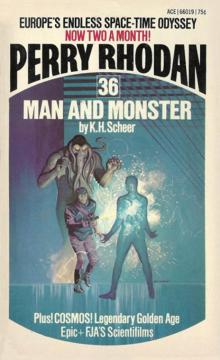 Man and Monster
Man and Monster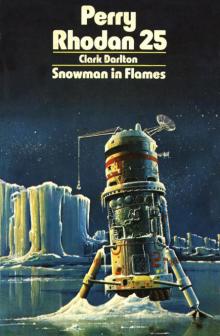 Snowman in Flames
Snowman in Flames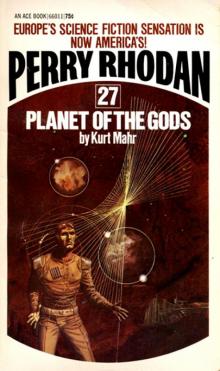 Planet of the Gods
Planet of the Gods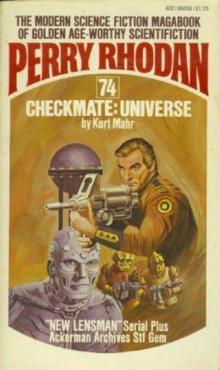 Checkmate Universe
Checkmate Universe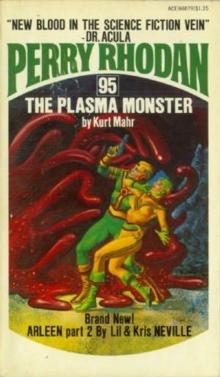 The Plasma Monster
The Plasma Monster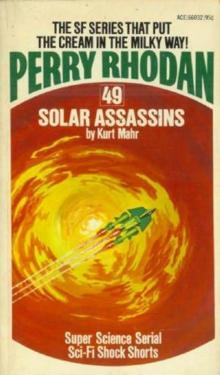 Solar Assassins
Solar Assassins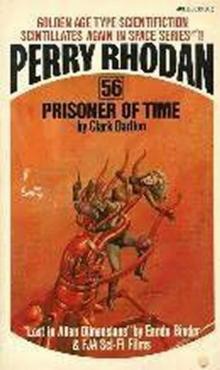 Prisoner of Time
Prisoner of Time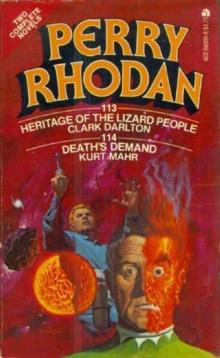 Death's Demand
Death's Demand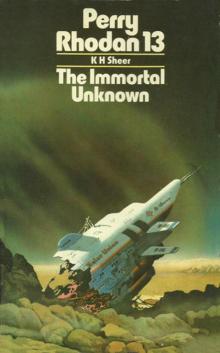 The Immortal Unknown
The Immortal Unknown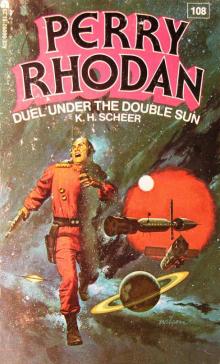 Duel Under the Double Sun
Duel Under the Double Sun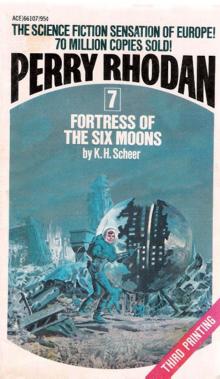 Fortress of the Six Moons
Fortress of the Six Moons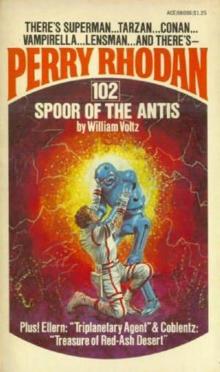 Spoor of the Antis
Spoor of the Antis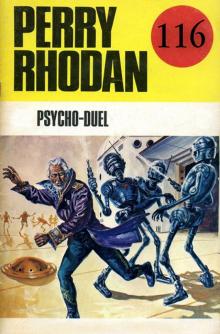 The Psycho-Duel
The Psycho-Duel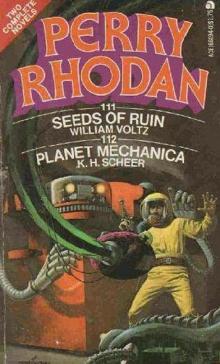 Planet Mechanica
Planet Mechanica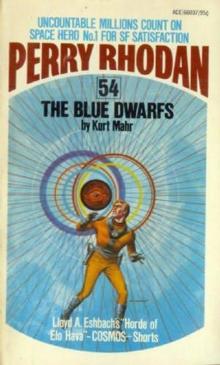 The Blue Dwarfs
The Blue Dwarfs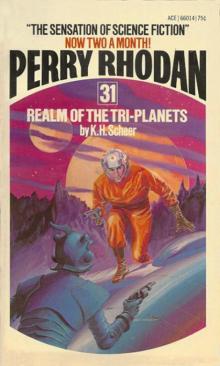 Realm of the Tri-Planets
Realm of the Tri-Planets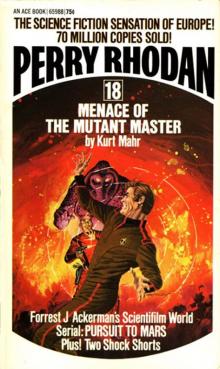 Menace of the Mutant Master
Menace of the Mutant Master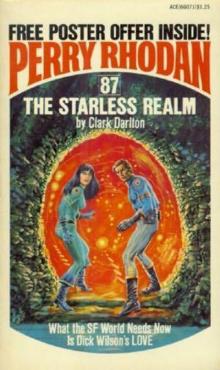 The Starless Realm
The Starless Realm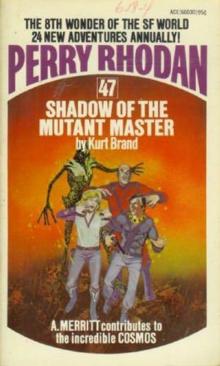 Shadow of the Mutant Master
Shadow of the Mutant Master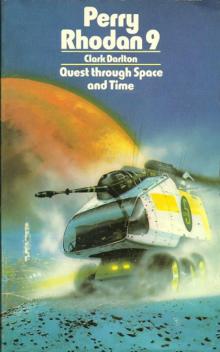 Quest Through Space And Time
Quest Through Space And Time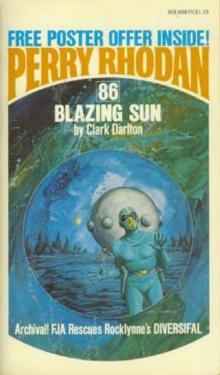 Blazing Sun
Blazing Sun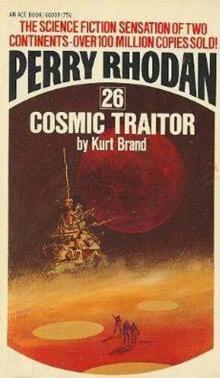 Cosmic Traitor
Cosmic Traitor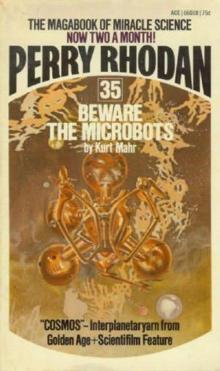 Beware the Microbots
Beware the Microbots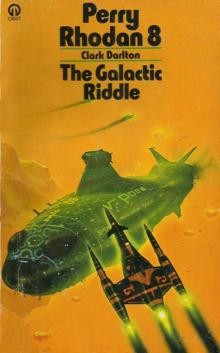 The Galactic Riddle
The Galactic Riddle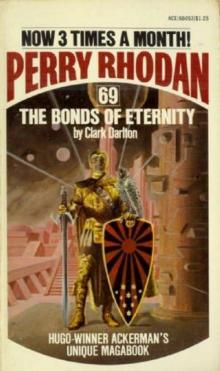 The Bonds of Eternity
The Bonds of Eternity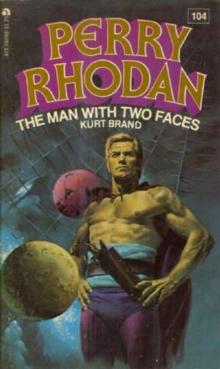 The Man With Two Faces
The Man With Two Faces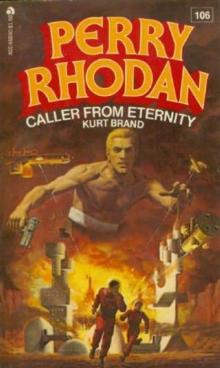 Caller from Eternity
Caller from Eternity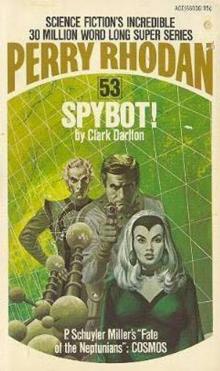 Spybot!
Spybot!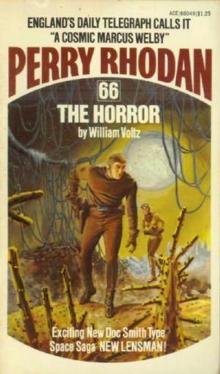 The Horror
The Horror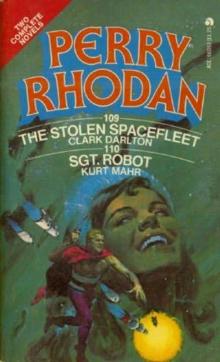 The Stolen Spacefleet
The Stolen Spacefleet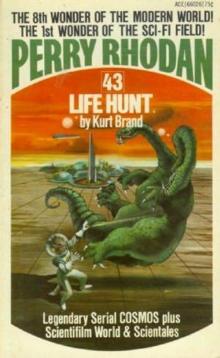 Life Hunt
Life Hunt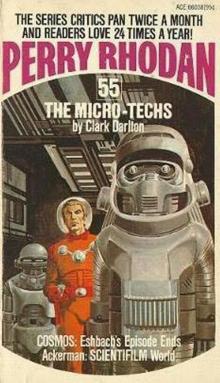 The Micro-Techs
The Micro-Techs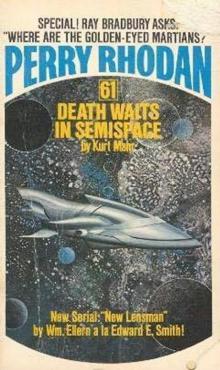 Death Waits in Semispace
Death Waits in Semispace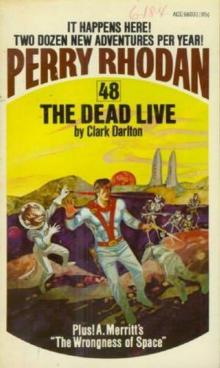 The Dead Live
The Dead Live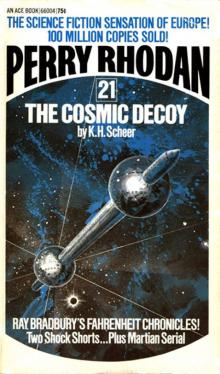 The Cosmic Decoy
The Cosmic Decoy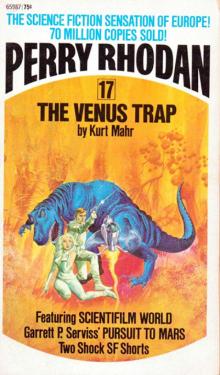 The Venus Trap
The Venus Trap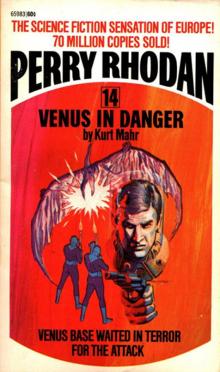 Venus in Danger
Venus in Danger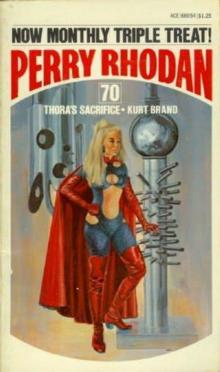 Thora's Sacrifice
Thora's Sacrifice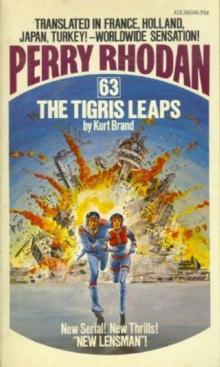 The Tigris Leaps
The Tigris Leaps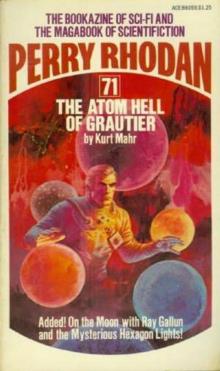 The Atom Hell of Grautier
The Atom Hell of Grautier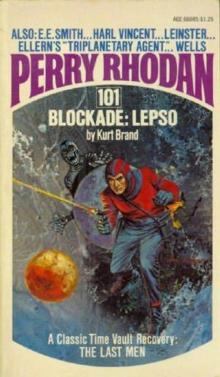 Blockade: Lepso
Blockade: Lepso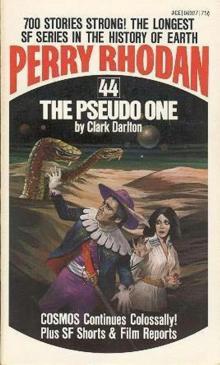 The Pseudo One
The Pseudo One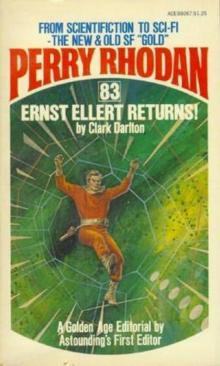 Ernst Ellert Returns
Ernst Ellert Returns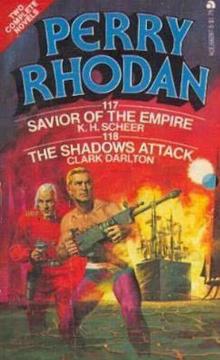 Savior Of The Empire
Savior Of The Empire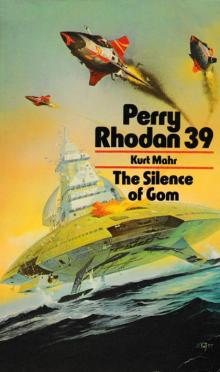 The Silence of Gom
The Silence of Gom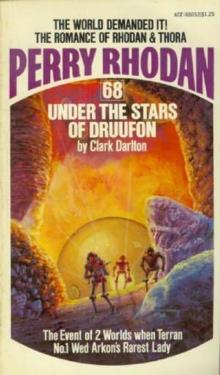 Under the Stars of Druufon
Under the Stars of Druufon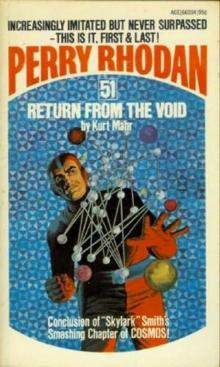 Return from The Void
Return from The Void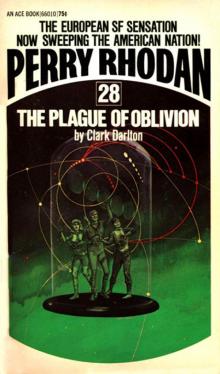 The Plague of Oblivion
The Plague of Oblivion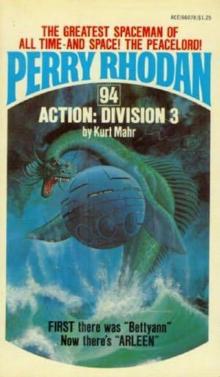 Action Division Three
Action Division Three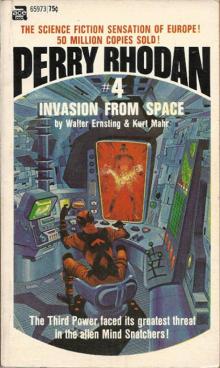 Invasion From Space
Invasion From Space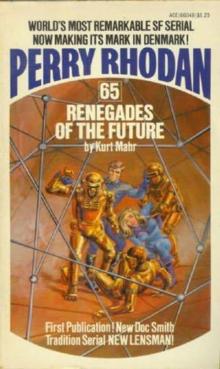 Renegades of the Future
Renegades of the Future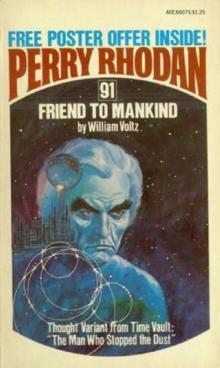 Friend to Mankind
Friend to Mankind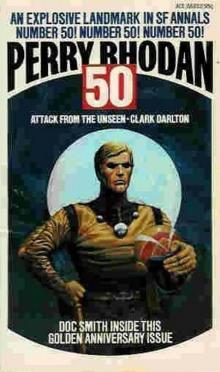 Attack from the Unseen
Attack from the Unseen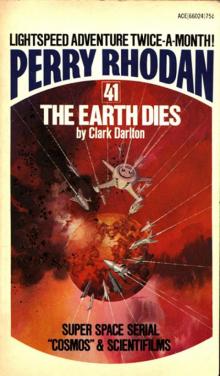 The Earth Dies
The Earth Dies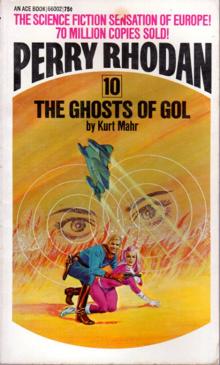 The Ghosts of Gol
The Ghosts of Gol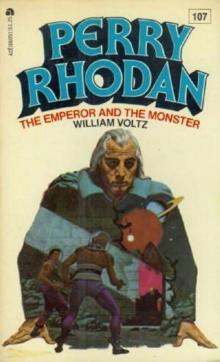 The Emperor and the Monster
The Emperor and the Monster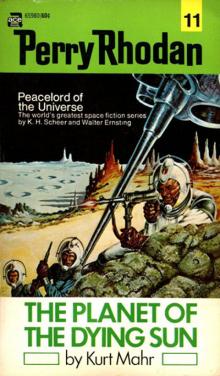 The Planet of the Dying Sun
The Planet of the Dying Sun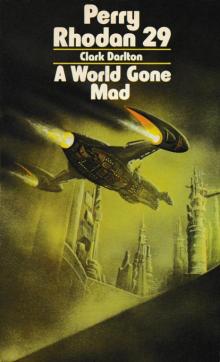 A World Gone Mad
A World Gone Mad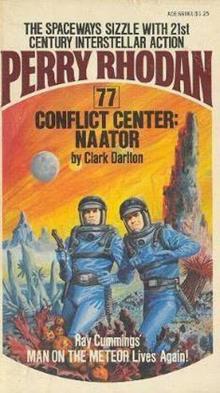 Conflict Center Naator
Conflict Center Naator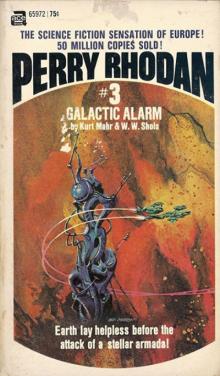 Galactic Alarm
Galactic Alarm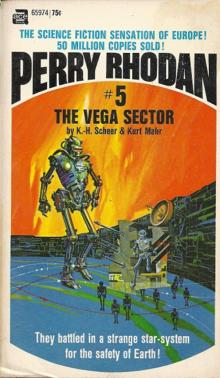 The Vega Sector
The Vega Sector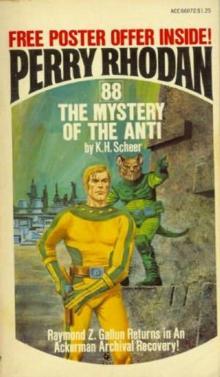 Mystery of the Anti
Mystery of the Anti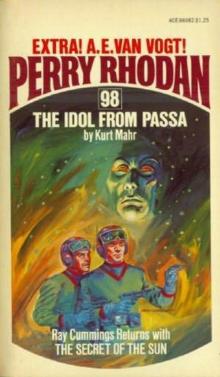 The Idol from Passa
The Idol from Passa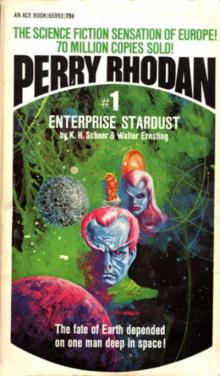 Enterprise Stardust
Enterprise Stardust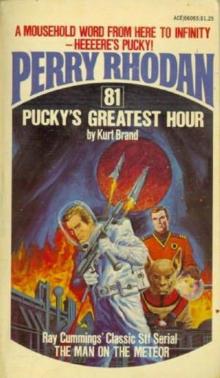 Pucky's Grestest Hour
Pucky's Grestest Hour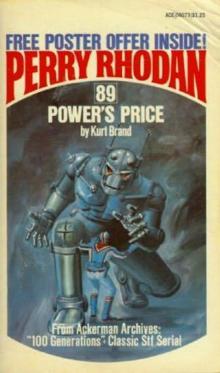 Power's Price
Power's Price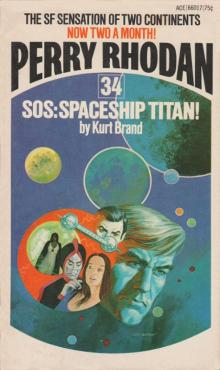 SOS Spaceship Titan
SOS Spaceship Titan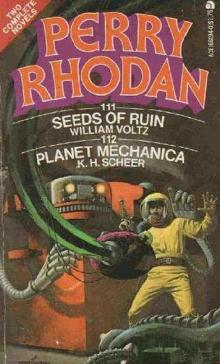 Seeds of Ruin
Seeds of Ruin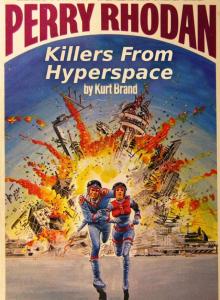 Killers From Hyperspace
Killers From Hyperspace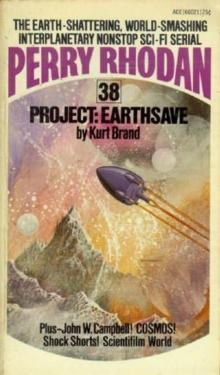 Project Earthsave
Project Earthsave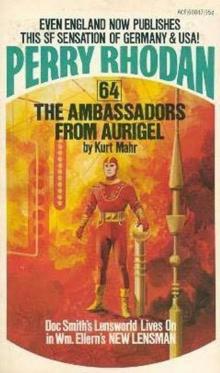 The Ambassadors from Aurigel
The Ambassadors from Aurigel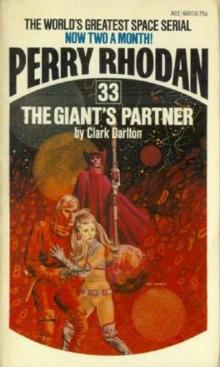 The Giant's Partner
The Giant's Partner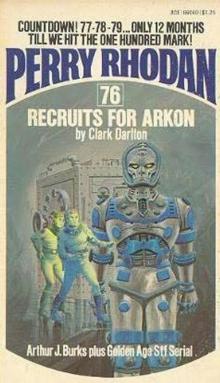 Recruits for Arkon
Recruits for Arkon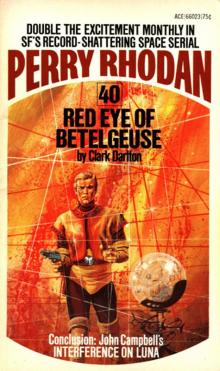 Red Eye of Betelguese
Red Eye of Betelguese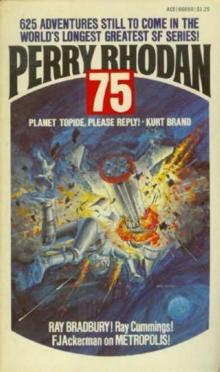 Planet Topide Please Reply
Planet Topide Please Reply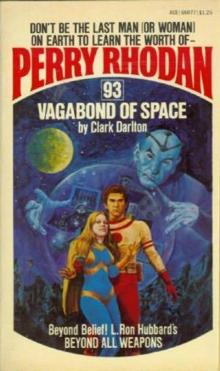 Vagabond of Space
Vagabond of Space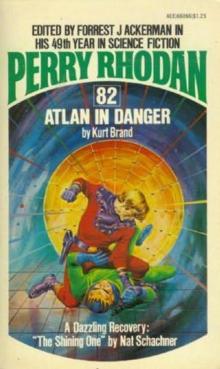 Atlan in Danger
Atlan in Danger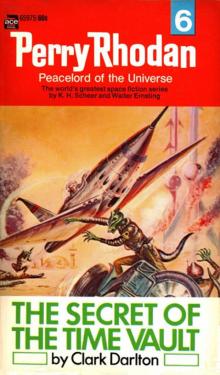 The Secret of the Time Vault
The Secret of the Time Vault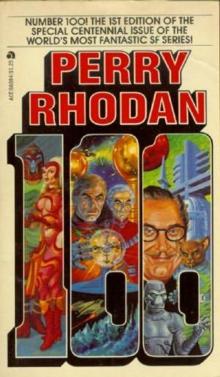 Desert of Death's Domain
Desert of Death's Domain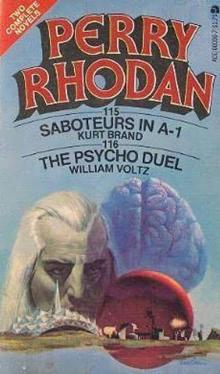 Saboteurs in A-1
Saboteurs in A-1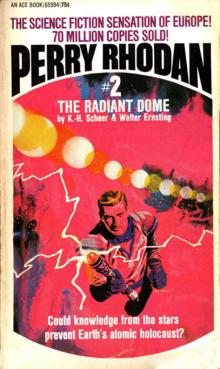 The Radiant Dome
The Radiant Dome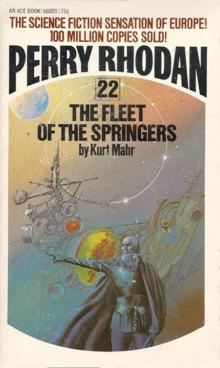 The Fleet of the Springers
The Fleet of the Springers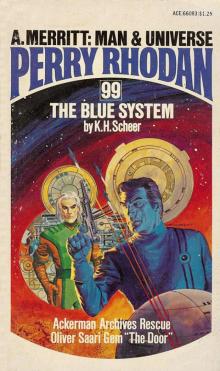 The Blue System
The Blue System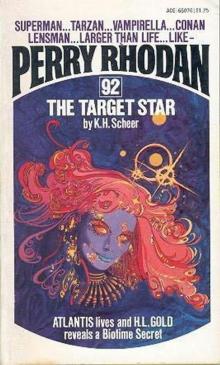 The Target Star
The Target Star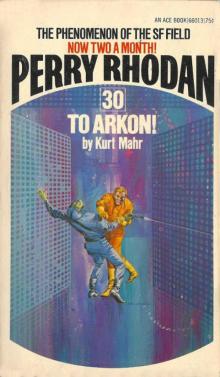 To Arkon!
To Arkon!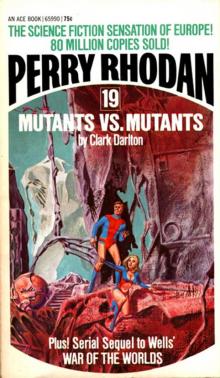 Mutants Vs Mutants
Mutants Vs Mutants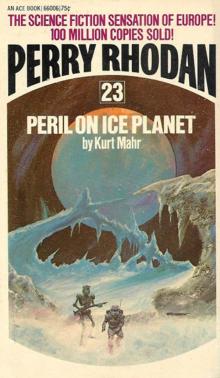 Peril on Ice Planet
Peril on Ice Planet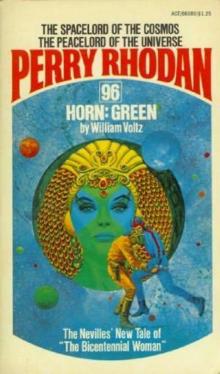 Horn: Green
Horn: Green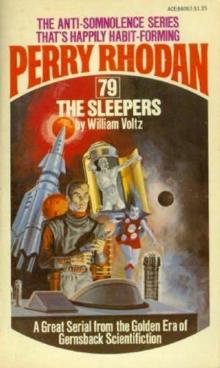 The Sleepers
The Sleepers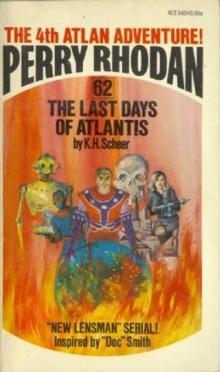 The Last Days of Atlantis
The Last Days of Atlantis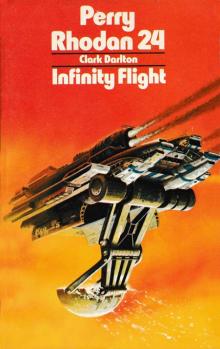 Infinity Flight
Infinity Flight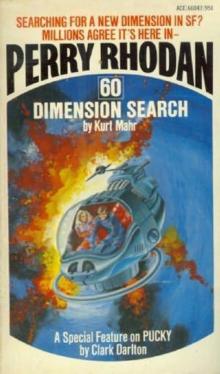 Dimension Search
Dimension Search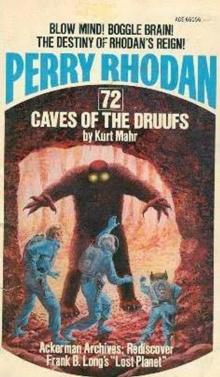 Caves of the Druufs
Caves of the Druufs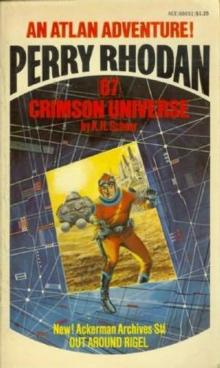 Crimson Universe
Crimson Universe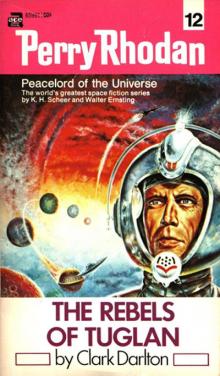 The Rebels of Tuglan
The Rebels of Tuglan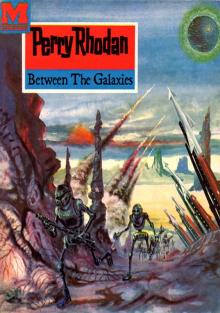 Between The Galaxies
Between The Galaxies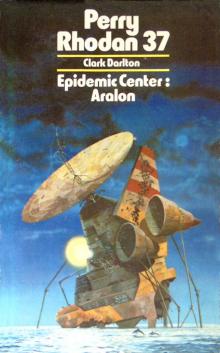 Epidemic Center Aralon
Epidemic Center Aralon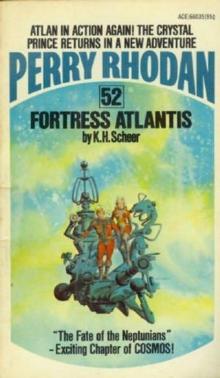 Fortress Atlantis
Fortress Atlantis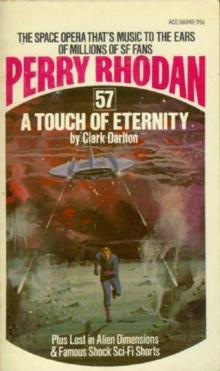 A Touch of Eternity
A Touch of Eternity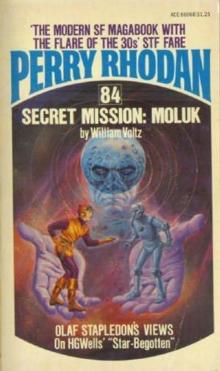 Secret Mission Moluk
Secret Mission Moluk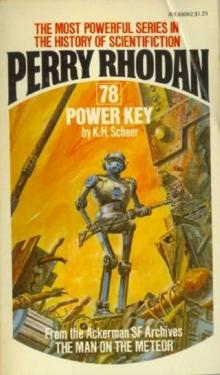 Power Key
Power Key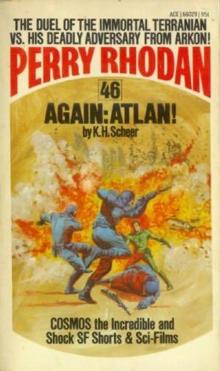 Again Atlan
Again Atlan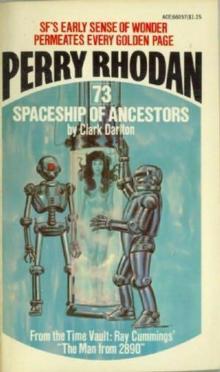 Spaceship of Ancestors
Spaceship of Ancestors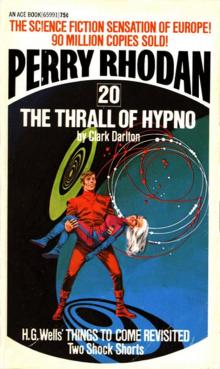 The Thrall of Hypno
The Thrall of Hypno